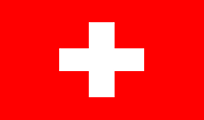Rosé wine is made from red grapes
Rosé is produced in the same process as red wine. The only difference is that the must stays in contact with the grape skins (which is where the colour comes from) for just a short time.
Whether white, red or rosé: to make a wine, you need ripe grapes, yeast – and time.
Step 1
The winemaker harvests the ripe red wine grapes.
Step 2
The grapes are destemmed and crushed.
Step 3
The resulting mash rests for several days before being pressed.
Step 4
The winemaker clarifies the cloudy grape juice.
Step 5
Yeast helps kickstart the alcoholic fermentation.
Step 6
Optional: malolactic fermentation (MLF). This process imparts a buttery flavour to the rosé wine.
Step 7
Storage or maturation in wooden barrels or stainless steel tanks.
Step 8
The wine is bottled, corked, labelled and of course: put on the market!
Alternatively, rosé wine can also be produced with immediate pressing. If the winemaker only wants minimal colouring, he will press the grapes immediately – without letting the mash sit. It is generally not permitted to blend white and red wines in the EU. The sole exception to this rule is rosé Champagne. The rules are different in the New World. The grapes are often mixed there, especially to produce affordable rosé wines.
Production process









Validate your login